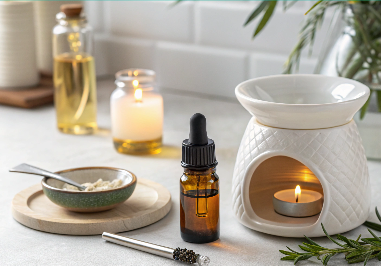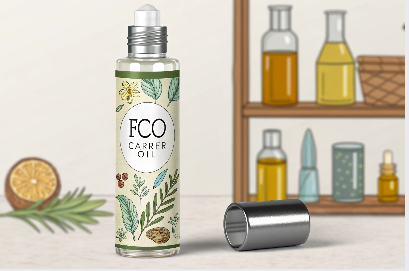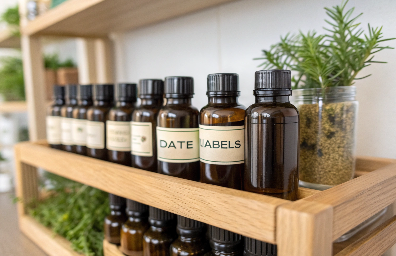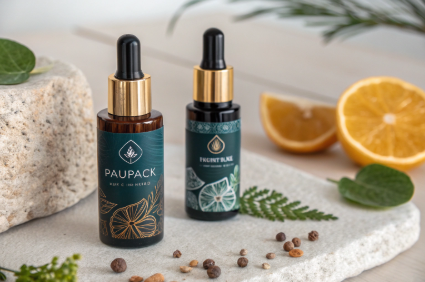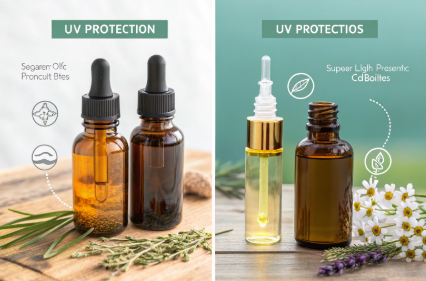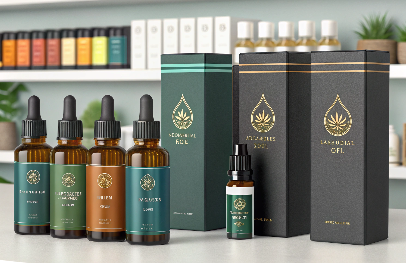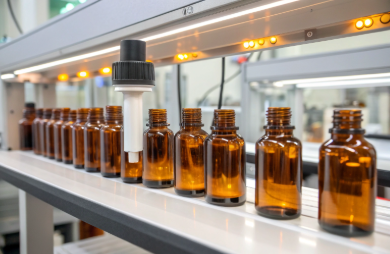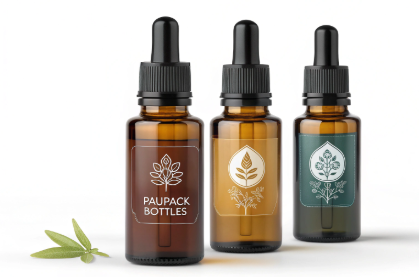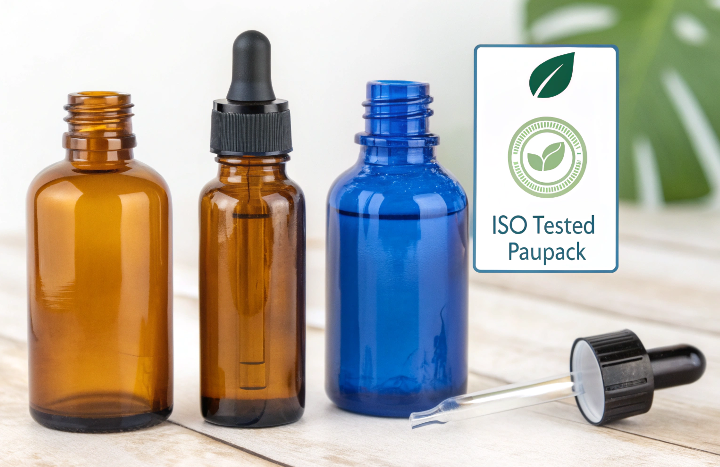Tinctures are concentrated herbal extracts—meant to deliver potent plant compounds with stability and precision. And the container they come in plays a crucial role in protecting that power.
Tincture bottles are made of glass—typically amber or cobalt—because glass is non-reactive, impermeable, and UV-protective, which helps preserve the chemical stability, safety, and shelf life of herbal extracts.
Glass ensures that your carefully prepared tincture remains pure from the first drop to the last, whether stored at home or sold on a retail shelf.
Why are bottles made from glass?
Glass has been used for storing liquids for centuries—and for good reason.
Bottles are made from glass because it is chemically inert, doesn’t absorb or leach substances, and provides a strong barrier against air, moisture, and light.
Unlike plastic or metal, glass won’t react with alcohol (the base of most tinctures), essential oils, or plant compounds. That makes it ideal for formulations that need to stay potent and uncontaminated over time.
Key Advantages of Glass Bottles
| Feature | Benefit |
|---|---|
| Non-reactive | Prevents chemical interaction with contents |
| Airtight when sealed | Reduces oxidation and spoilage |
| UV protection (amber) | Shields contents from light degradation |
| Reusable and recyclable | Eco-friendly and durable |
At PauPack, we use pharma-grade amber and cobalt glass to package not only essential oils but also tinctures and liquid herbal extracts—ensuring maximum safety and shelf life in a professional format.
Can you put tinctures in plastic bottles?
It might be convenient, but it’s rarely a good idea.
Tinctures should not be stored in plastic bottles long-term, especially if they contain alcohol or essential oils, which can degrade plastic and cause leaching of harmful chemicals into the liquid.
Only certain high-grade plastics like HDPE might be acceptable for short-term use or diluted, non-alcoholic blends—but even then, glass is always the safer and more professional option.
Risks of Plastic Bottles for Tinctures
| Risk Factor | Impact |
|---|---|
| Chemical leaching | May introduce toxins into the tincture |
| Reduced shelf life | Allows air and light penetration |
| Structural degradation | Can warp or crack with alcohol exposure |
| Poor brand perception | Looks low-cost, less trusted |
That’s why PauPack only offers plastic as a refill or temporary solution, while our core packaging for tinctures remains dark glass with pipette or dropper caps.
Why are specimen bottles made of glass?
Medical and lab-grade storage needs the highest standards of purity.
Specimen bottles are made of glass because they preserve sample integrity by preventing contamination, chemical reactions, and permeability—critical in scientific and diagnostic environments.
Glass allows for accurate visibility, sterilization, and long-term storage without the risk of absorbing or altering the sample’s contents.
Lab-Grade Benefits of Glass
-
Can be autoclaved or heat-sterilized
-
Doesn’t bind to biological or chemical materials
-
Maintains accurate volume and clarity over time
The same logic applies to herbal tinctures: if purity matters, glass is the trusted standard.
Why are some meds in glass bottles?
From liquid antibiotics to injectables, glass isn’t just for tradition—it’s for precision.
Some medications are stored in glass bottles to prevent chemical degradation, maintain sterility, and ensure long-term stability under a variety of conditions.
Many active ingredients are sensitive to air, moisture, or reactive packaging materials. Glass creates a barrier that plastic can’t match—especially in pharma and nutraceutical formulations.
Glass vs. Plastic for Medications
| Factor | Glass Bottle | Plastic Bottle |
|---|---|---|
| Reactivity | None | Possible with solvents |
| Shelf Life Extension | Yes | Often shorter |
| Sterilization Ready | Autoclavable | Limited resistance |
| Tamper Evidence | Shrink band or break seal | Available in both forms |
PauPack offers glass dropper bottles with tamper-evident closures and graduated pipettes, which are perfect for tinctures and liquid supplements that require precise dosing and stability.
Conclusion
Tincture bottles are made of glass because glass protects, preserves, and presents herbal extracts at their best. Non-reactive, UV-blocking, and durable—glass isn’t just tradition. It’s science, safety, and shelf appeal combined.




